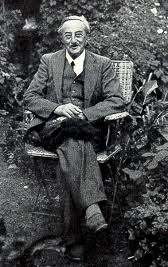
Arnold van Gennep, in full Charles-Arnold Kurr van Gennep (born 1873, Wurttemberg, Germany -died 1957), French ethnographer and folklorist, best known for his studies of the rites of passage of various cultures.
Although Gennep was born in German and had a Dutch father, he lived most of his life and received his education in France, his mother’s native country. Gennep learned a remarkable number of languages, 18 by his own count, and thus could effectively use linguistic and philological facts in his ethnographic studies. Most of his work was done outside of, and occasionally at odds with, the academic community, which he himself described in Les Demi-Savants (1911; The Semi-Scholars).
Gennep’s major work was Les Rites de Passage (1909; The Rites of Passage), in which he systemically compared those ceremonies that celebrate an individual’s transition from one status to another within a given society. He found a tripartite sequence in ritual observance: separation, transition, and incorporation. Gennep offered interpretations of the significance of these rites as forms of social regeneration, based on such natural symbols as death and rebirth.
Gennep also made studies of European folklore, viewing folk literature and practices as aspects of a living culture rather than as remains of a dead one. His writings include the monumental Manuel de folklore francais contemporain (1937-58; “Manual of Contemporary French Folklore”). He also edited the “Ethnographie-Folklore-Religions-Prehistoire” section in the publication Mercure de France and wrote Religions, moeurs et legendes; Essais d’ethnographis et de linguistique (1908-14; “Religions, Customs and Legends; Essays of Ethnology and Linguistics”).
Encyclopedia Britannica